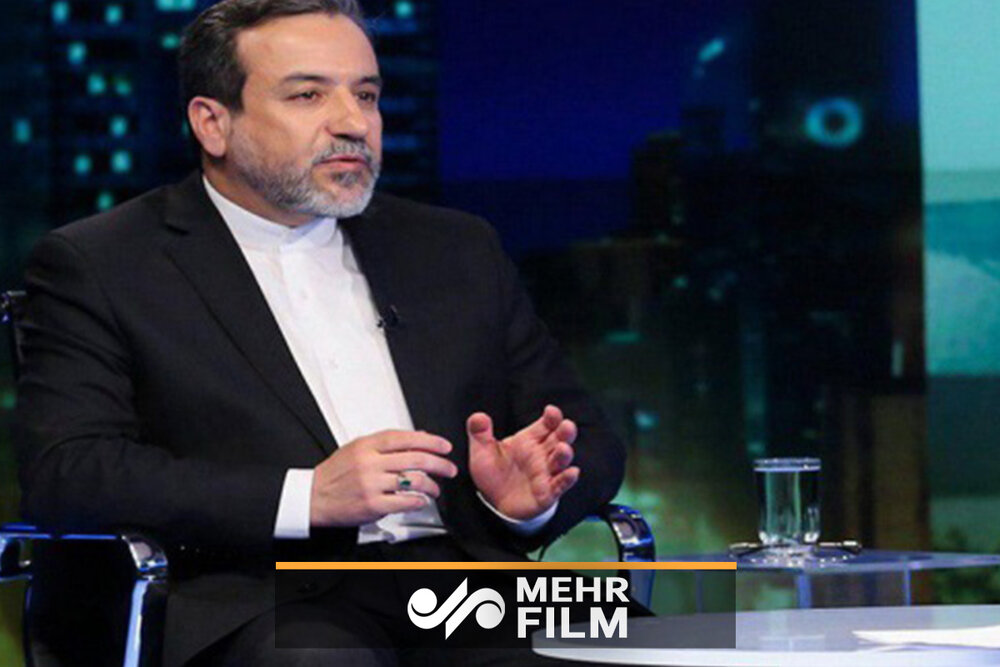Araghchi says regional non-aggression pact will pave the way for trust

TEHRAN - Iranian Deputy Foreign Minister for Political Affairs Abbas Araghchi said on Tuesday that a “regional non-aggression pact” will pave the way for neighboring countries to build trust and have constructive interaction.
Iranian Foreign Minister Mohammad Javad Zarif said on Sunday that he has proposed the “regional non-aggression pact” with Persian Gulf Arab countries during his three-day trip to Iraq.
“In #Iraq, where I’ve held substantive and productive meetings with the President, PM, Speaker, FM & leadership of two parliamentary coalitions. Proposed regional non-aggression pact: #NeighborsFirst,” Zarif tweeted on Sunday.
During a meeting with Qatari Foreign Minister Mohammed bin Abdulrahman bin Jassim Al Thani, Araghchi said security would prevail in the region when all regional countries enjoy security and economic benefits.
He also said that Iran will never negotiate with the United States.
Araghchi was in Muscat on Sunday. He met with Omani Foreign Minister Yusuf bin Alawi bin Abdullah.
“The Islamic Republic of Iran is ready to establish balanced and constructive relations with all countries in the Persian Gulf region based on mutual respect and interests,” Araqchi told the Omani chief diplomat.
He noted that Iran is not seeking to provoke tension in the region.
During his three-day visit to Iraq, Zarif held talks with senior Iraqi officials including President Barham Salih, Prime Minister Adil Abdul-Mahdi and political leaders such as Ammar al-Hakim, leader of the Iraqi National Wisdom Movement.
During a joint press conference with Iraqi Foreign Minister Mohamed Ali Alhakim, Zarif said that Iran sought the best of relations with the Persian Gulf littoral countries and would welcome any proposals for dialogue and de-escalation toward that end.
However, he added, Tehran will forcefully confront any attempts at waging a military or economic campaign against his country, according to Press TV.
Among the six countries member to the Persian Gulf Cooperation Council, Iran enjoys good relationship with Oman, Qatar, and Kuwait.
Iran also had good relationship with Saudi Arabia, the United Arab Emirates and Bahrain. However, Saudi Arabia and the UAE changed their tact toward Iran as Tehran seriously entered nuclear negotiations with the 5+1 countries – the five permanent members of the UN Security Council plus Germany – to end more than a decade of nuclear standoff with the West. Saudi Arabia was so unhappy with the negotiations that it even sent its foreign minister Saudi al-Faisal to Vienna, the venue of the talks, in November 2014 to undermine the process of nuclear negotiations.
Saudi Arabia and the UAE are also unhappy with Iran which has strongly criticized their senseless war on fellow Arab nation of Yemen. Iran has also condemned the Saudi suppression of pro-democracy movements in Bahrain.
In addition, the relationship between Iran and Saudi Arabia started nosediving with the new leadership in Riyadh. Saudi Crown Prince Mohammed bin Salman has used the worst insults against Iran and compared Iran to the Nazi Germany.
Donald Trump, a real estate magnate who succeeded to win the post of president in the U.S. in 2016, has also misused the frosty relationship between Iran and Saudi Arabia to sell more arms to Saudi Arabia and the UEA.
Regrettably, Saudi Arabia, the United Arab Emirates and Bahrain also welcomed the United States’ exit from the 2015 nuclear deal and reimposition of sanctions against Iran. Saudi Arabia and the UAE have even promised Trump to pump more oil to the market as Washington has threatened to drive Iran’s oil exports to zero.
In addition, certain rulers in the UAE and Saudi Arabia repeat the claims by Israeli Prime Minister Benjamin Netanyahu that Tehran is trying to revive the Persian Empire.
In order to milk Saudi Arabia and the UAE more and more, analysts say, the Trump administration, has reinforced its military buildup in the region by sending the USS Abraham Lincoln carrier strike group and a bomber task force to the Persian Gulf, citing Iran’s threat.
The U.S. had alleged that it had evidence that Iran was trying to target the interest of the U.S. and its allies in the region.
To show the insincerity of the United States’ claim, the Iranian envoy to the United Nations has urged Washington to declassify its alleged evidence of Iran’s threat.
Israel media outlets have revealed that Tel Aviv is the source of alleged threat by Iran.
Foreign Minister Mohammad Javad Zarif has already said Prime Minister Benjamin Netanyahu and Trump’s national security advisor are trying drag the U.S. into a war with Iran.
NA/PA
